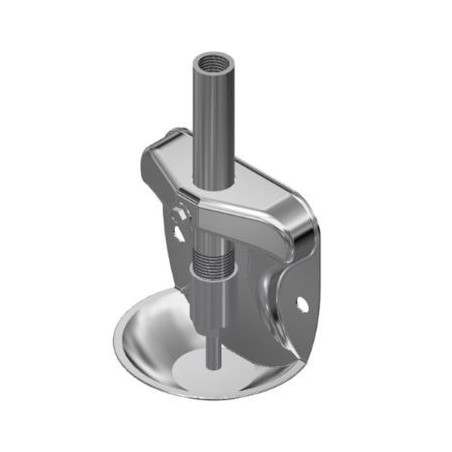The purpose of the current study was to evaluate whether early postnatal stress due to cross-fostering alters the behavioral response to stress in weaned pigs. We hypothesized that piglets who were cross-fostered into another existing litter would exhibit heightened behavioral indicators of stress after weaning in response to three behavioral stress tests compared to their non-biological litter mates, and their non-fostered biological siblings. Three cross-fostered piglets from each non-fostered sibling litter were randomly selected and moved to a foster litter 12–24 h post-farrowing, where they were nursed along non-biological litter mates piglets until weaning (approximately 18 d of age). At 7- and 14-d post-weaning, all piglets underwent a novel object test in their home pens. At 21- and 28-d post-weaning, one male and one female piglet from each treatment underwent one of two behavioral tests: social isolation and dyadic contest in an isolated 1.22 × 1.22 m novel pen. All data were analyzed using the GLIMMIX procedure in SAS.
Non-biological littermate pigs exhibited a lower latency to interact with a novel object during novel object test round 1 compared to non-fostered pigs, whereas cross-fostered pigs were intermediate to but not different from either treatment. A treatment by sex interaction was detected during novel object test round 2, where cross-fostered males exhibited a lower latency to interact with a novel object compared to non-fostered pigs and cross-fostered female pigs. Additionally, non-biological litter mates females exhibited a lower latency to interaction with a novel object during novel object test round 2 compared to non-fostered siblings, cross-fostered female, and non-biological litter mate male pigs. No treatment differences were detected during the social isolation test. Treatment by sex interactions were detected during the dyadic contest for number of aggressive interactions and number of aggressive interactions initiated by an opponent. Specifically, non-fostered biological siblings females and cross-fostered males received a greater number of aggressive interactions and a greater number of aggressive interactions initiated by an opponent compared to non-fostered biological siblings males, cross-fostered females, and non-biological litter mate pigs.

Taken together, these results indicate that the early postnatal stress associated with cross-fostering affects cross-fostered piglets in a sex-specific manner. Further, non-biological litter mates pigs may be the most capable of handling novel stressors post-weaning, as they exhibited fewer behavioral indicators of stress during the novel object test and dyadic contests.
Byrd CJ, Young JM, Sommer DM. Cross-fostering alters the post-weaning pig behavioral stress response in a sex-specific manner. Applied Animal Behaviour Science. 2022; 249: 105593. https://doi.org/10.1016/j.applanim.2022.105593.





